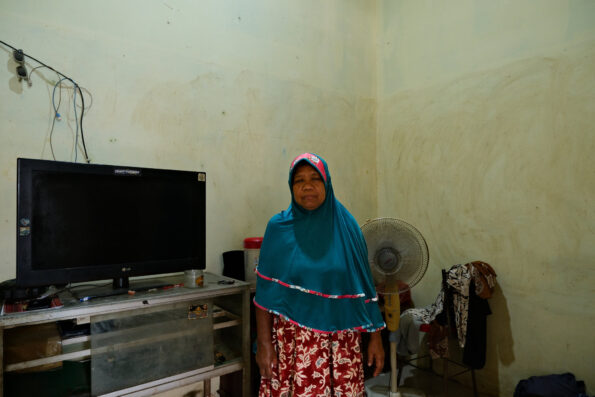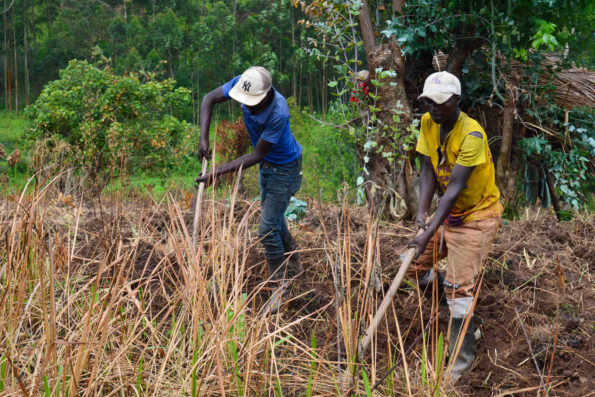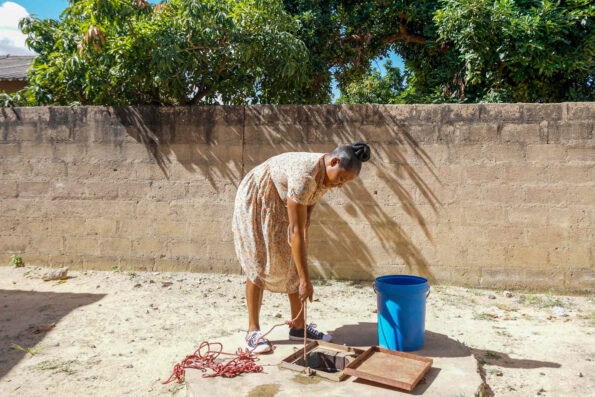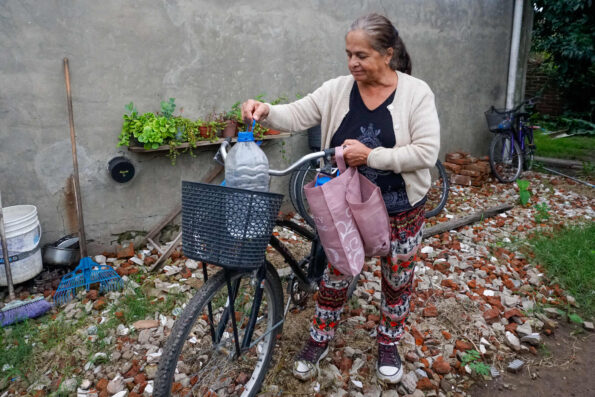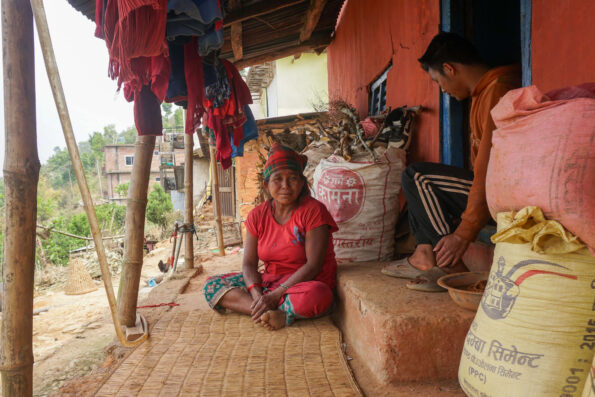
Gamuchirai Masiyiwa, GPJ Zimbabwe
Aleck Musa, who lives in Wedza, a rural area in eastern Zimbabwe, studies his tobacco harvest. Last year’s drought damaged his crop.
WEDZA, ZIMBABWE — Aleck Musa, a tobacco farmer for a decade, frowns as he recalls how the drought in 2020 caused acute losses. His tobacco plants should have had 16 or 17 leaves, he says. Instead, they had 10 to 12.
“Which meant our yield was lower than expected,” Musa, 48, says. His harvest plummeted by 40%.
After expenses, he earned only enough to pay his children’s school fees and buy “a few bags of fertilizer,” says the father of six.
Tobacco farmers in Wedza, about 132 kilometers (82 miles) southeast of Harare, the capital, struggled with drought last year, and they’ve battled excessive rainfall this year. Such are the wild weather patterns that afflict Zimbabwe’s tobacco growers, thrashing both the size and quality of their yields and buffeting the earnings of a cash crop known as the golden leaf.
Since the preindustrial era, human activities have caused Earth to warm by 1 degree Celsius (1.8 degrees Fahrenheit), according to the Intergovernmental Panel on Climate Change, the United Nations body that assesses climate change. But while the planet is slowly warming, much of sub-Saharan Africa, including Zimbabwe, is warming faster.
The country’s average temperature climbed 1.38 degrees Celsius (2.48 degrees Fahrenheit) between 1970 and 2016, according to data from the World Bank. This has led to more intense droughts and added pressure on the water supply and agriculture sector, according to Zimbabwe’s meteorological department.



Zimbabwe is Africa’s preeminent producer of tobacco. In 2018, tobacco contributed about 10% to Zimbabwe’s gross domestic product, according to a 2020 article published by the research journal Tobacco Control.
A decline in tobacco yields affects both local and international economies. The crop is Zimbabwe’s top foreign currency earner, and the country ranks as the world’s sixth-largest tobacco producer.
Dry spells in 2020 slashed the tobacco yield by 80 million kilograms (176 million pounds) compared with 2019, says Andrew Matibiri, chief executive officer at the Tobacco Industry and Marketing Board, a regulatory and advisory statutory body for the tobacco industry.
Zimbabwe has seen extreme weather patterns since 2003, Matibiri says. Farmers have borne the brunt of that meteorological volatility.
“Some years you get [too much] rain,” Matibiri says, “and in some years, you don’t get enough.”
During the 2019–2020 farming season, Zimbabwe saw low rainfall, and tobacco growers who normally start planting in September couldn’t do so until December.



Wedza, a town awash in fields of green tobacco and maize, typically gets lots of rain from November to March. Last year, the rains began in October, and some farmers planted their tobacco seedlings. Then the rain stopped, and their crops withered. Farmer Alleta Sangu lost 7,000 tobacco plants.
“Sometimes the weather reports mislead us,” says Sangu, who lives in Wedza.
A tobacco farmer for eight years, Sangu says that during good years, she and her husband built a house, bought a car, purchased more farming equipment and bought cattle.
Now life is tough: She doesn’t even have money to repair their car.
“We prioritize other things like paying [school] fees for my children,” she says.
Because of her struggles, Sangu didn’t grow tobacco this year. She focused instead on maize and other vegetables. But she says the financial returns pale compared with tobacco.
Matibiri says his organization helped tobacco farmers combat drought by offering access to irrigation that growers can pay for with a government loan. More than 2,000 farmers have participated, he says.
But farmers who aren’t near bodies of water say the project excludes them. Matibiri agrees that this has been a problem but says the government has drilled boreholes for those growers.



Barbra Mafara, 48, a tobacco farmer since 2008, says drought wrecked her tobacco yields last year. In fact, it’s the third time in recent years that dry weather has lashed her crops.
Four years ago, the dry climate forced her into contract farming. A contractor supplies a farmer with seed, fertilizer and chemicals, and after selling the crop, the grower repays the contractor and takes the remaining profit.
“We couldn’t afford to reinvest back in our fields due to the losses we incurred because of drought,” says Mafara, a married mother of three.
She had hoped to rebound in 2021. But this time, wet weather was the culprit, washing away nutrients that typically feed tobacco, a problem known as leaching.
The yield on her two hectares dropped by 68%.
“Too much rain has struck us down again,” she says.
Gamuchirai Masiyiwa is a Global Press Journal reporter based in Harare, Zimbabwe. She is an internationally acclaimed economy and education reporter.
Translation Note
Gamuchirai Masiyiwa, GPJ, translated some interviews from Shona.


